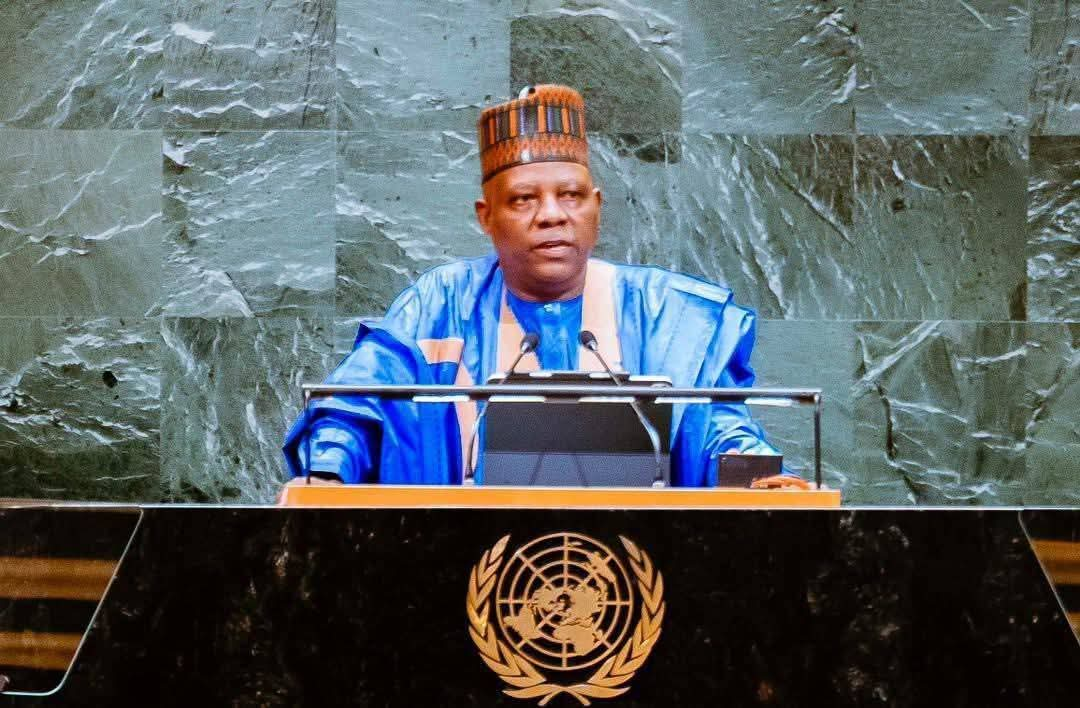Shettima at UN: Nigeria Champions Values over Violence

By Katsina Times
Nigeria’s Vice President, Kashim Shettima, has told world leaders at the United Nations in New York that the ultimate weapons against terrorism and violent extremism are not military firepower but values, ideas, and shared humanity.
Speaking at the UN Conference, Shettima said military operations may secure temporary victories, but lasting peace can only be achieved through ideals rooted in justice, tolerance, and compassion. “We are despised by terrorists because we choose tolerance over tyranny,” he declared, contrasting extremist ideologies with what he called the civilised world’s conscience.
Shettima drew parallels between Nigeria’s battle with terrorism and banditry and the wider global crises, warning that unchecked violence rarely remains confined. He cited flashpoints such as Gaza and Qatar to show how conflicts spread across borders. The Vice President urged world leaders to view the fight against terror as a shared global struggle rather than isolated national challenges.
Clear Stand on Gaza
On the Middle East conflict, Shettima reaffirmed Nigeria’s support for a two-state solution, describing it as the only sustainable path to peace. He rejected narratives that reduce civilian deaths to collateral damage, insisting that innocent lives must not remain trapped in “corridors of endless debate.”
Civilisation Against Anarchy
Shettima framed the confrontation with extremism in moral terms: “The difference is between shadow and light, between despair and hope, between anarchy and order.” He repeated his call for civilised values over fear, vengeance, and bloodshed, stressing that peace is a conscious choice.
Call for Multilateral Action
The Vice President also underscored the importance of multilateral cooperation and adherence to international law. He argued that no single country can defeat terrorism or resolve conflicts alone, but through shared values and collective action, the global community can offer what he called “the best, perhaps only, hope for peace and reconciliation.”
Shettima’s address reflects Nigeria’s attempt to position itself as a moral voice in global diplomacy despite its ongoing domestic security challenges. His call for values over weapons highlights both the country’s limits in military projection and its desire to wield moral influence.
The speech, however, leaves open questions about implementation—whether ideals of tolerance and multilateralism can break the deadlock in entrenched conflicts such as Gaza, and whether Nigeria itself can fully embody the values it urged the world to adopt.
For now, Shettima has placed Nigeria firmly among nations urging a shift from war to values, from vengeance to peace.

